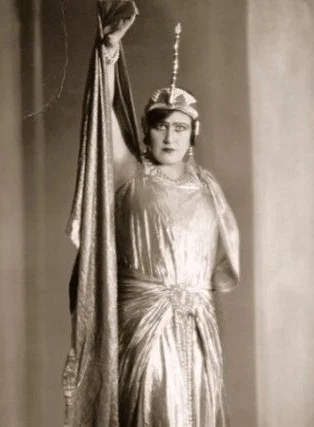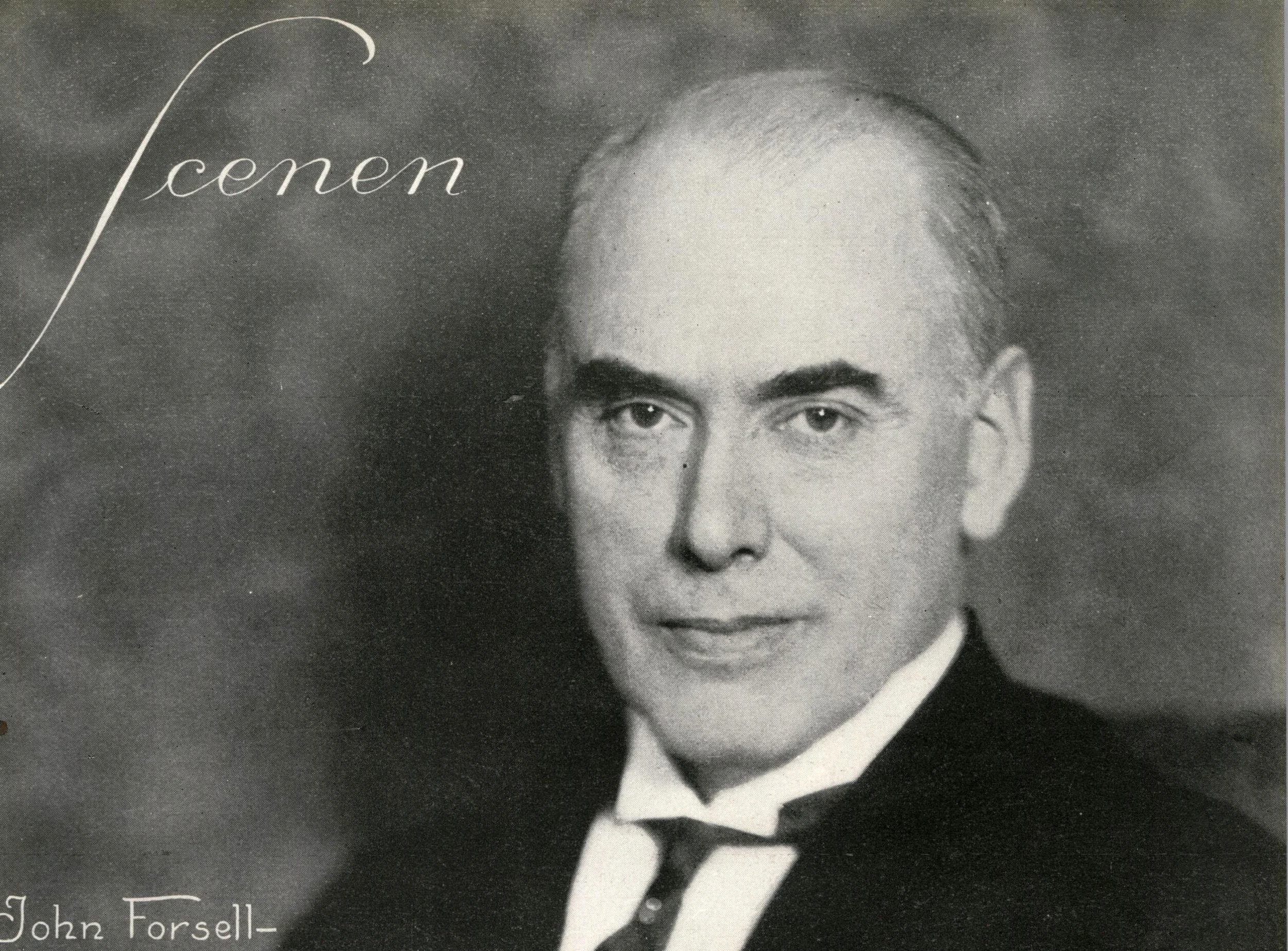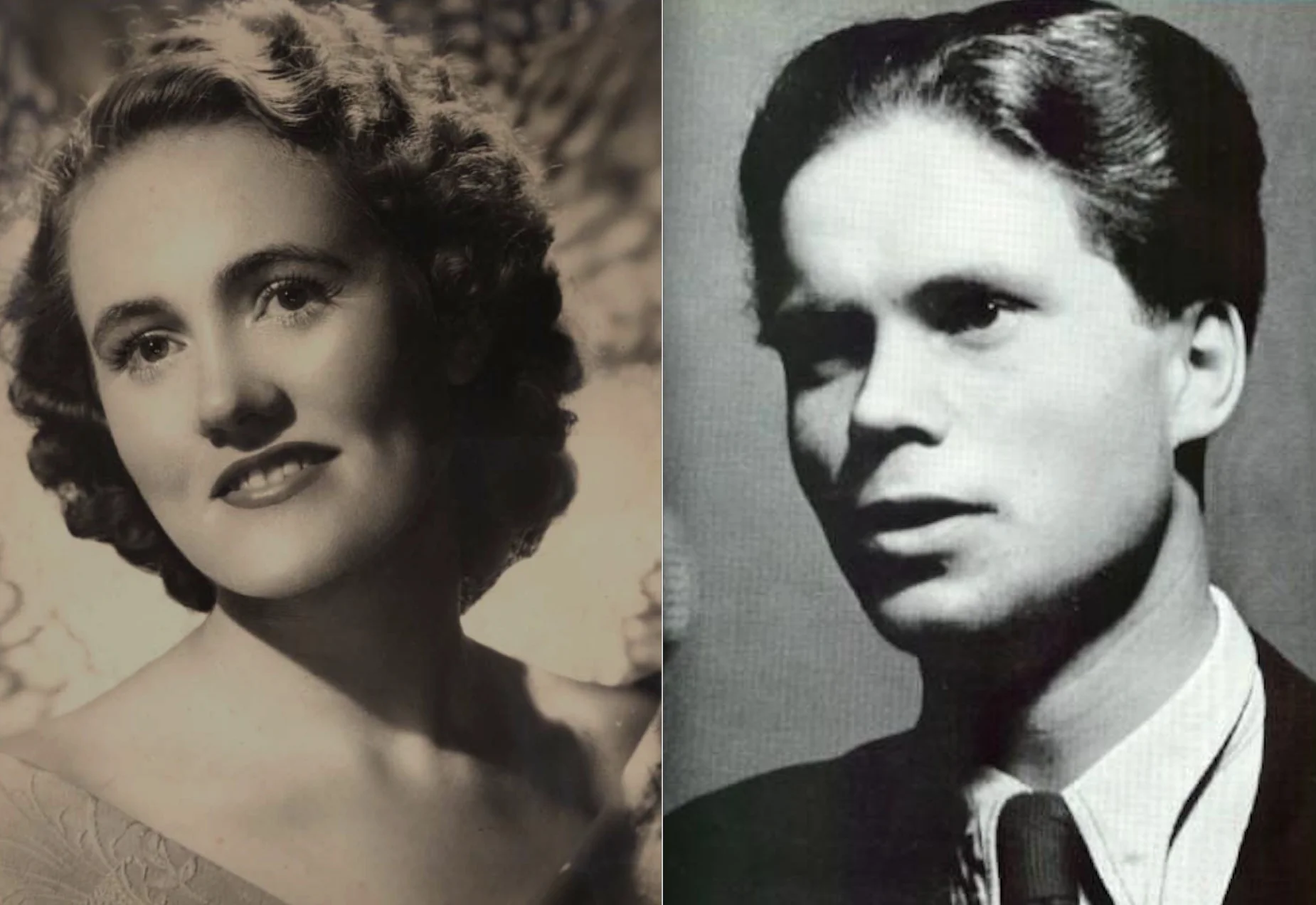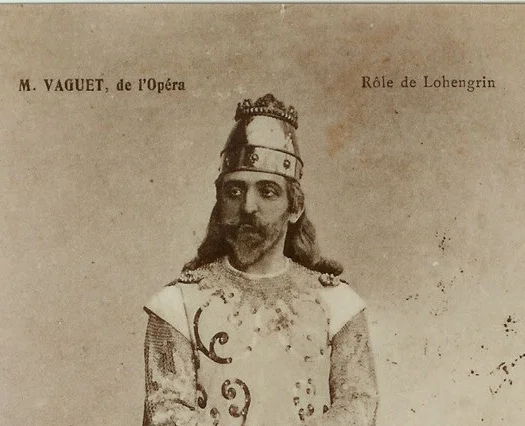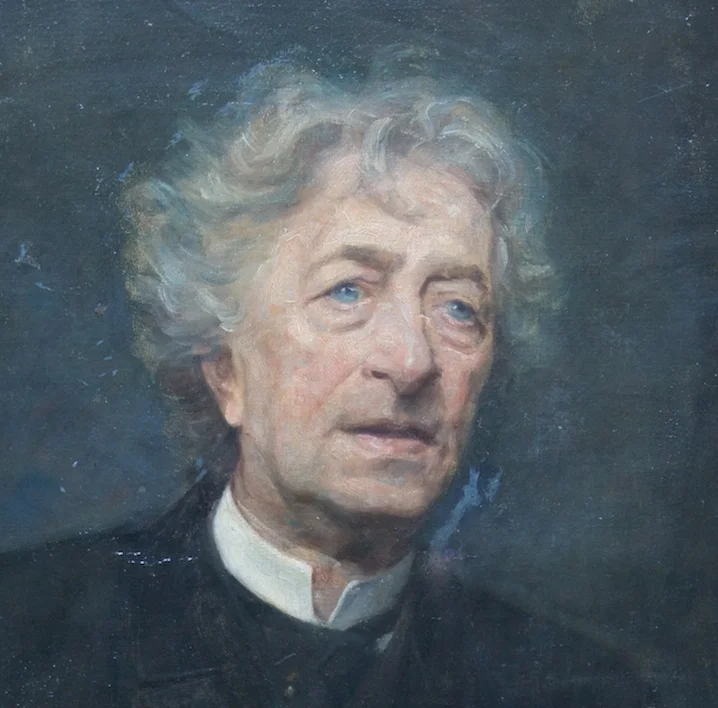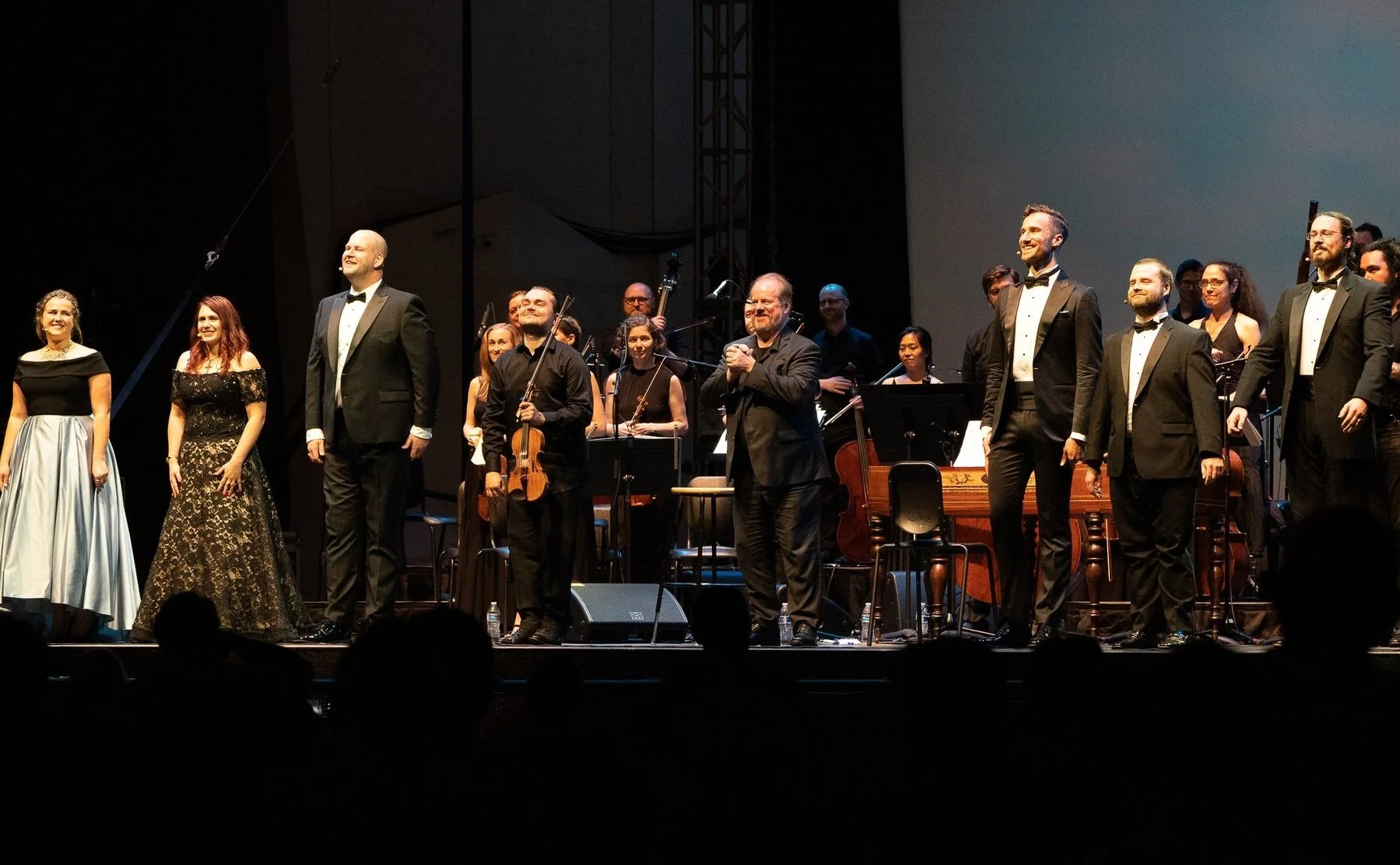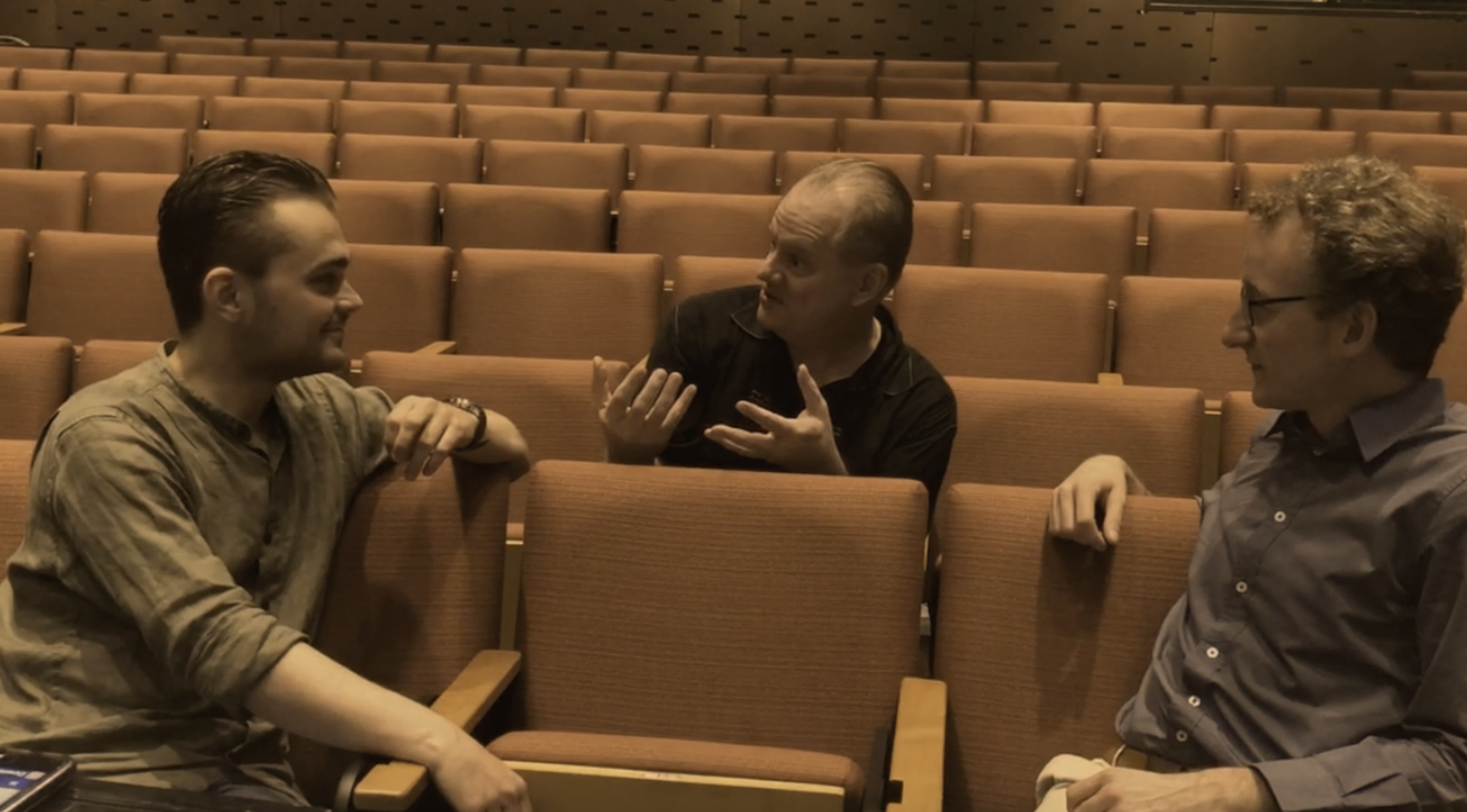Mme. de Reszke
Jean de Reszke, Amherst Webber, and Madame de Reszke
This week’s record is the only known sample of a voice from which we wish we had dozens. On 22 April 1905, a visit was made to the Paris studios of the Fonotipia company by Jean de Reszke, by far the most celebrated tenor in the world, who had just two years earlier retired from the stage. With him was Mme. de Reszke, née Marie de Goulaine, Comtesse de Mailly-Nesle by a previous marriage. The tenor recorded an aria each by Gounod and Massenet and ordered their immediate destruction upon hearing the test pressings. He also sat as piano accompanist for his wife in songs by Lalo and Gounod along with two excerpts from the latter’s Sapho.
Being a noblewoman, Marie de Reszke had never sung professionally, and her records may not have been put on sale. Only the Gounod song has ever been found (though with a properly printed label that suggests at least the intent of normal publication). It preserves one of the smoothest, steadiest, most polished mezzo-soprano voices ever recorded. One can only guess whether she also had the power and range of a true operatic instrument, but she had perfect legato, exquisite blending of the registers (passing easily from chest to head in smooth portamento), eloquent and unaffected pronunciation of Alphonse Lamartine’s verses (or rather the first stanza of them), simple but unerring phrase-direction. Just what you want to hear, and just the thing to give interest to such a slender morceau as “Au rossignol.”
Her vibrato is narrow and rapid - faster than that of anyone singing today, though only on the high side of average for her time. It may take a little getting used to; a lot has changed, in both technique and taste, since the time of Romantic opera. But it is 100% consistent and regular. And the singer’s poise and concentration are remarkable for someone completely unused to recording. She creates a real atmosphere.
Teatro Nuovo puts great emphasis on learning from the singers who had never heard, or heard of, microphone singing - primitive recordings from more than a century ago, forming a link to the traditions of opera’s heyday and the infinite potential of the natural, unassisted human voice. Check this space regularly for samples, and click here for some pointers on how to listen.
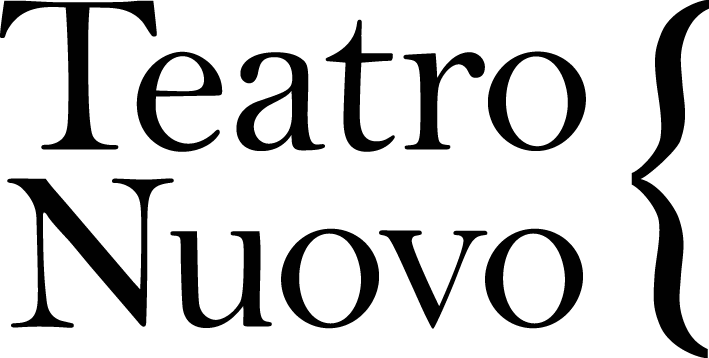




![Image 2 - Henry T. [Harry] Burleigh - Detroit Public Library.jpeg](https://images.squarespace-cdn.com/content/v1/596bb4e703596e837b624445/1591713684327-N7HW488JSZ7EN8T5AJSR/Image+2+-+Henry+T.+%5BHarry%5D+Burleigh+-+Detroit+Public+Library.jpeg)







